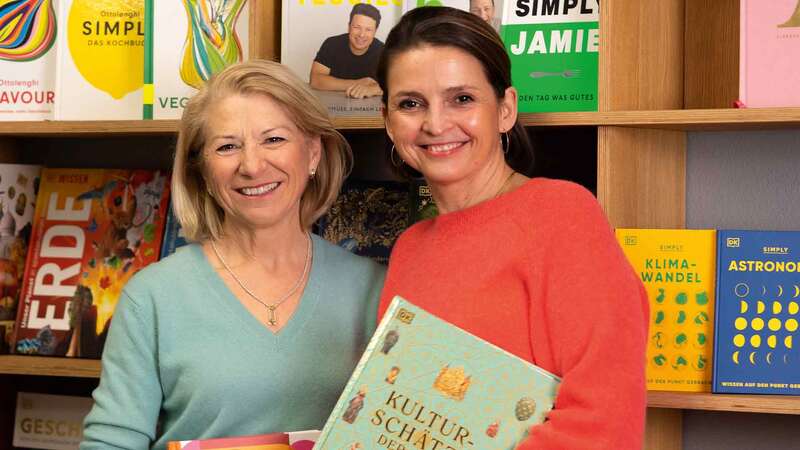You are viewing your 1 free article this month. Login to read more articles.
Bookshop-publisher-author
It is almost exactly a year since I rode into Barcelona on a second-hand bicycle I had bought in Lisbon a thousand miles earlier. As well as all the normal enjoyment of seeing your book on a shop shelf, I’m also slightly amazed when I stop to think that it was only 12 months ago that Iberia was in the same notepad I’m yet to fill.
Writing has always been one of my most regular companions in travel, whether cycling around the world or hitch-hiking across the United States. Cycling across Iberia between the Covid lockdowns of 2020, after borders opened and before they snapped shut again, in an impromptu plan inspired mainly by a reluctance to fly back to London, had in it the sense of a cross-section of time and place that lent itself more naturally than ever to writing.
Travel writing normally relies on going to a different place and recording it, while, despite being in Portugal and Spain rather than the UK, the pandemic made our own world so radically different, that in some ways the travel came to us.
The pandemic has had an effect (good and bad) of heightening everything, so that a roadside kindness of gifted food, or a decision to ride rather than fly, can seem to relate readily back to questions of how we live. Travel writing normally relies on going to a different place and recording it, while, despite being in Portugal and Spain rather than the UK, the pandemic made our own world so radically different, that in some ways the travel came to us.
Reflection on process has also been integral to the publishing method that—where publishing can often take years—has in this case seen Iberia come about so rapidly. Correspondence with Nic Bottomley at Fox, Finch & Tepper—at first just thoughts on my cycling versus his once driving through the Alentejo—led to sharing some idle musings from the notepad, which led then to sharing a full manuscript, and then to the publishing process that created a book that is now on so many shelves while its earliest spirit is still memorable.
Fox, Finch & Tepper is a publishing imprint within Bottomley’s prominent Bath independent bookshop, Mr B’s. The swift transformation of Iberia from notepad to book also owes something to that relationship, and in some ways the spirit of buying an old bicycle and riding it from Atlantic to Mediterranean has also figured in the approach to publishing.
Firstly, and cliché though it might be to say, at the heart of it is a genuine love of books, and that which silently precedes even a book, often to be forgotten: writing. Everyone involved with Iberia has enjoyed being part of the journey. Second is an understanding of both the publishing process and the nature of what the book-buying public want. But third, perhaps most important, was a sort of faith in the spirit of the process. The book’s beautiful cover was illustrated by one of Mr B’s team, Tess Mahuta. Chief among editors was Kate Brown, though well deputised by Lottie May and Callum Churchill, always with supporting oversight from Nic Bottomley, and proofreading and design input from so many other members of the Mr B’s/Fox, Finch & Tepper crew.
Everyone at the shop has played a part in the book’s coming together, and while everyone involved has been more than a match for what came our way, it was a young team often rising to, and solving, the challenges of publishing a new title for the first time. In an industry problematically centred in London, and where closed networks guard the all-important acquisition of first experience in publishing, it feels richly satisfying that Iberia developed a handful of new opportunities that, much like buying a second-hand bicycle and simply setting out, will seed new stories and publishing paths.
The tight relationship of bookshop-publisher-author also has another prong, with principal distribution done entirely through Gardners, the UK wholesaler. This has been done to keep the entire process as close as possible to the roots of the book trade and high street, and in so doing offer some kind of model of best practice for how books can be brought to market.
Given my own Turkish heritage, and my most recent writing all being from the Middle East and North Africa, from Tunisia to Palestine, it is a final irresistible prescience, or kismet, that at the time of our early correspondence on Iberia, Nic was reading Kaouther Adimi’s A Bookshop in Algiers (Profile Books). Some of the lines he quoted, about a bookstore/publishing house in Algeria, summarise the spirit of both Iberia and Fox, Finch & Tepper as well as any of us could ever hope to.
”This will be a library, a bookstore, a publishing house, but above all a place for friends who love the literature of the Mediterranean…”
“I confessed to my friends that I have never separated publishing from bookselling. For me it’s the same thing. I can’t see how you can be a publisher if you have no experience of bookselling.”
While a lot of this might seem simply nice, or well-meaning, the reality is anything but. Though I’d hesitate to employ such an over-used term, throughout the process of bringing the book together, I often thought of what programmers call "agile": a working method that, with a fluid sharing of roles, non-hierarchical and open, people-first process, helps you move iteratively but quickly towards your goal.
Publishing, perhaps particularly travel writing, is instrumental in helping us understand an ever-accelerating world that can seem hostile and confusing. In this landscape, structural threats to the book are already present, whether that is the expectations of rapidity that come with the internet, or the welcome competition that comes from long-form articles online that nevertheless can’t match the granular attention of a book, journey and narrative non-fiction.
If Iberia—on a second-hand bicycle, and impromptu—was a different approach to writing and riding than my rides and books from Palestine or circumnavigating the world, then the publishing process was equally rewarding in its difference, and perhaps, likewise, might hold some wider lessons too.
Julian Sayarer is a travel writer and past winner of the Stanford Dolman Travel Book of the Year Award. He writes roadside politics, has circumnavigated the world by bicycle (Life Cycles), and written a roadside politics of cycling through Palestine (Fifty Miles Wide). Iberia is his sixth book.









